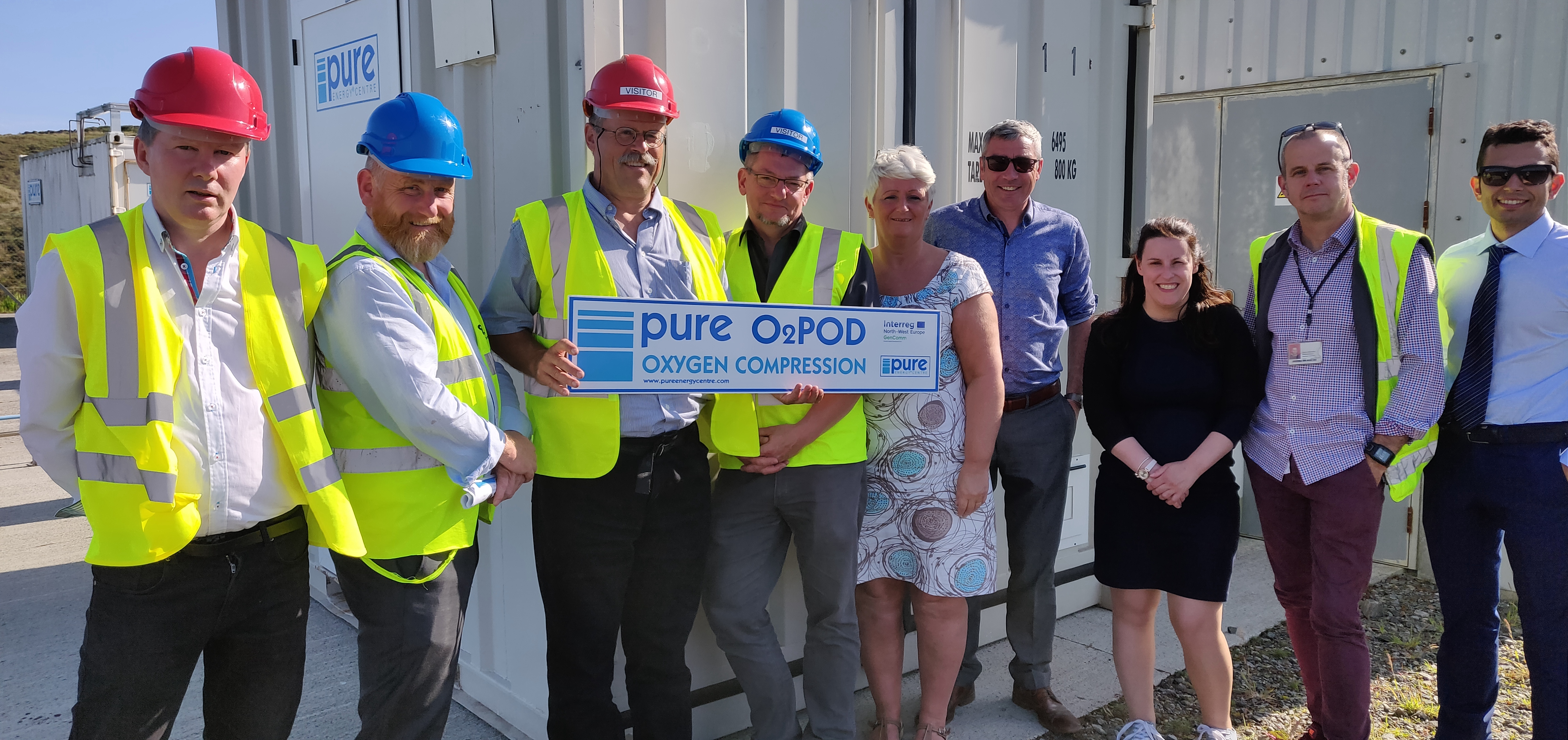As part of the GenComm renewable hydrogen project, a €9.39M Interreg North-West Europe-funded project, the Pure Energy Centre (PEC) in Stornaway in the Outer Hebrides, one of ten European partners involved in the project, is due to soon complete works on the installation of its anaerobic digestion plant; an innovative bio-energy plant that will generate fully renewable hydrogen from biodegradable waste, to not only generate electricity for the local community on the Isle of Lewis and Harris, but also generate oxygen for the island's fish farms for the breeding of salmon.
The main aim of the GenComm project is to enable remote communities to access renewable energy in the form of hydrogen, in a bid to tackle the ongoing and long-term challenge of unreliable grid connection. As part of the smart hydrogen project, Pure Energy Centre's work package has looked at how waste streams can be optimised to produce biogas and generate clean hydrogen.
Elizabeth Johnson MBE, from Pure Energy Centre, explained how their circular economy had been developed at the recent GenComm Open Meeting in Stornaway:
"The biogas produced from the anaerobic digester on our Stornaway plant fuels a Combined Heat and Power Engine (CHP), where it generates both heat and power, and where some of the power feeds back into the electrical grid network. Any excess electricity generated from the CHP is then directed to an electrolyser, where hydrogen and oxygen are produced through a process of electrolysis, where water gets split into hydrogen and oxygen. The fully renewable hydrogen has then a dual use. It is used to power local businesses on the island, all-importantly avoiding the need to import power from the grid which to a large extent is not renewable. One of the greatest environmentally sustainable and commercial benefits of the green hydrogen is that it can also be used to fuel vehicles, reducing the high CO2 emissions that are heavily associated with this sector. What is possibly more interesting however about the Stornaway plant is that the oxygen produced from the electrolytic process is compressed and stored, and used by a local fish farm for the breeding of salmon. The circular economy then continues, with the fish waste being directed back to the anaerobic digester to produce biogas, where the circular process begins again."
The GenComm project will demonstrate and validate the maturity of hydrogen as a commercially viable energy medium for the future. This will be researched via 3 pilot plants in Northern Ireland, Scotland and Germany, each linking different renewable sources (Solar Power, Wind Power, and Bio-energy) to hydrogen energy storage, for heat, power and transport. From the pilot plants, technical and financial simulation models will then be developed, with the overall aim of producing the project's key output - a Decision Support Tool (DST). This online tool will provide a roadmap for communities and energy stakeholders to transition to renewable, hydrogen-based energy, enabling them to identify if their local electrical network grid circumstances and availability of renewable resources make hydrogen a good fit.
Paul McCormack, Gencomm's Project Director from Belfast Met College, the Lead Partner in the project, said:
"Renewable and hydrogen technologies are key to the development of our future energy systems and without projects like GenComm and the Interreg North West Europe funding, we would not have the capacity to fully explore the potential of smart hydrogen and its commercial value. Our research and development continues, and we look forward to the findings from each of the 3 plants. We also invite new members to join our Community Hydrogen Forum (CH2F), a forum that will provide energy stakeholders across Europe with the opportunity to be kept informed about project findings and outcomes."
The recent Open Meeting at Stornaway's Lewis Castle College, which was supported by Comhairle nan Eilean Siar (the Western Isles Council), gathered experts and project partners from across North West Europe - Germany, France, Belgium, Scotland and the North and South of Ireland. To be kept informed about future GenComm meetings and to join the CH2F, please visit http://www.nweurope.eu/gencomm
-ENDS-

